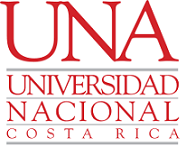El principio reflexivo de la razón de empresa contemporánea: la competitividad
DOI:
https://doi.org/10.15359/eys.27-62.1Keywords:
Neoliberalism, Governmentality, Management, Strategy, GenealogyAbstract
Today, some of the social studies that approach neo-liberalism as a rationality tend to see competition as its central principle. This is particularly due to Michel Foucault's study of the microeconomic school of German Ordoliberalism in the late 1970s. In this way, Foucault approached competitive action from an economistic / regulatory market logic and left aside theories on the formation of entrepreneurial behaviour necessary to beat the rival. The latter refers to strategic management and its concept of competitiveness, which condenses the idea of permanently strengthening companies to win. The aim here is to develop a genealogical scheme of business strategy to ask whether "competitiveness" and not "competition" is the reflexive principle of contemporary neo-liberalism or "reason of enterprise".
References
Aguilo, E. (1982). Stigler y la Organización Industrial. Cuadernos de Economía, 10(27), 3-30.
Becker, G. S. (1958). Competition and Democracy. The Journal of Law & Economics, 1, 105-109.
Coloma, G. (1997). La ley argentina de defensa de la competencia. Anales de la XXXII Reunión Anual de la Asociación Argentina de Economía Política (págs. 1-20). Bahía Blanca: AAEP.
Crouch, C. (2011). The Strange Non-Death of Neoliberalism. Cambridge: Polity.
Dardot, P., & Laval, C. (2013). La nueva razón del mundo. Ensayo sobre la sociedad neoliberal. Barcelona: Gedisa .
Davies, W. (2014). The Limits of Neoliberalism. Authority, Sovereignty and the Logic of Competition. London: SAGE Publications Ltd.
Foster, R. (2015). The Therapeutic Spirit of Neoliberalism. Political Theory, 1-24.
Foucault, M. (2006 [1978]). Seguridad, territorio, población: curso en el Collège de France (1977-1978). Buenos Aires: FCE.
Foucault, M. (2007 [1979]). Nacimiento de la biopolítica: curso en el Collège de France (1978-1979). Buenos Aires: FCE.
Hierro Sánchez-Pescador, L. (1991). Una introdución a la Ley 16/1989 de Defensa de la Competencia. La tradición norteamericana y el contexto comunitario. Ekonomiaz: Revista vasca de economía(21), 14-32.
Levy, D., Alvesson, M., & Willmott, H. (2013). Critical approaches to strategic management. En M. Alvesson, & H. Willmott, Studying management critically, 2nd edn (págs. 92-110). Newbury Park: SAGE.
Mas, F. F. (2020). Management, estrategia y subjetividad: la competitividad como conducción de vida. Tesis de doctorado inédita. Mendoza, Argentina: Facultad Ciencias Políticas y sociales, Universidad Nacional de Cuyo.
Mas, F. F. (2021). ¿“Empresario de sí” o “forma empresa”? Competencia y subjetividad managerial. Trabajo y Sociedad(37), 459-476.
Piraino Jr., T. A. (2007). Reconciling the Harvard and Chicago Schools: A New Antitrust Approach for the 21st Century. Indiana Law Journal, 82(2), 345-409.
Porter, M. (1981). The contributions of Industrial Organization to Strategic Management. Managerial and decision economics, 6(4), 609-620.
Porter, M. (1985). Competitive advantage: creating and sustaining superior performance. New York: Free Press.
Porter, M. (2000 [1980]). Estrategia competitiva. Técnicas para el análisis de los sectores industriales y de la competencia (edición revisada). México: Grupo Editorial Patria.
Ramírez Cendrero, J. (2003). Los nuevos desarrollos de la economía industrial y las justificaciones de la política industrial. Economía industrial, 6(354), 157-172.
Rasmussen, D. (2017). The Gospel According to Michael Porter. Institutional Investor, 2-11.
Röpke, W. (1960 [1958]). A Humane Economy - The Social Framework of the Free Market. Chicago: Henry Regnery Company.
Rothschild, R. (1987). The Theory of Monopolistic Competition: E.H. Chamberlin's Influence on Industrial Organisation Theory over Sixty Years. Journal of Economic Studies, 4(1), 34-54.
Soto Pineda, J., & Jaramillo de los Ríos, L. (2019). Aspectos comunes de la escuela de Chicago y Harvard en materia de libre competencia: el aporte del Neoinstitucionalismo. Boletín Mexicano de Derecho Comparado(154), 77-106.
Downloads
Published
How to Cite
Issue
Section
License
This publication is subject to the Creative Commons License; therefore, its attributions and restrictions must be respected.
Authors publishing in this Journal accept the following conditions:
- Authors retain copyright ownership and give the Journal first publication right of the paper, which is registered with the Creative Commons Attribution-NonCommercial-ShareAlike 4.0 International License. This license allows third parties to use the published work provided it is sourced as firstly published in this Journal.
- Authors may enter into other independent and additional contractual agreements for the non-exclusive distribution of the article published in this Journal (e.g., to be included in an institutional repository or published in a book) provided it is clearly stated that the work was published in this Journal for the first time.
- Authors are allowed and recommended to publish their work on the Internet (for example, on institutional or personal pages) before and during the review and publication process, as it can lead to productive exchanges and a greater and faster dissemination of work published.

The Economía & Sociedad Journal, published by Universidad Nacional, is licensed under a Creative Commons Reconocimiento-NoComercial-CompartirIgual 4.0 Internacional License. Based on http://www.revistas.una.ac.cr/index.php/economia.







